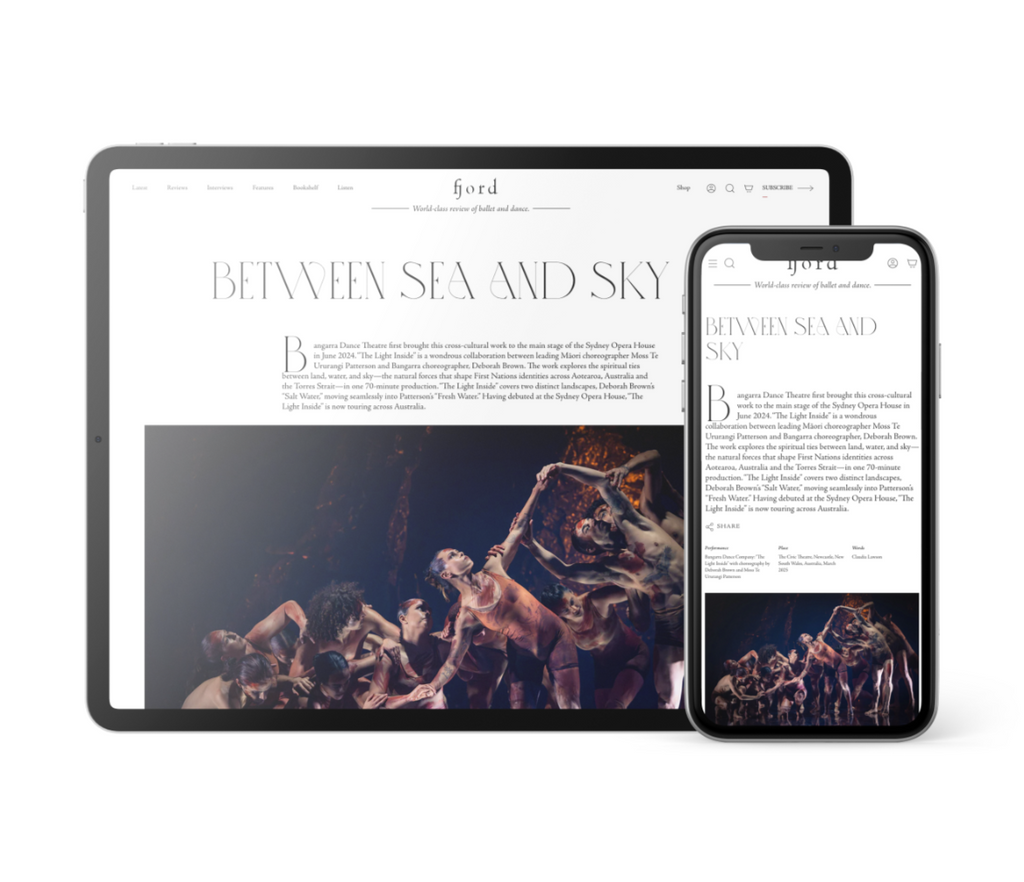A Dance for All
Company Grande, a new dance theater project from the Saitama Arts Foundation triumphed in their recent production, “The Rite of Spring.”
Continue Reading
World-class review of ballet and dance.
In Seoul, South Korea, at the Jongmyo shrine, a royal ancestral ritual of prescribed music and dance is performed annually. The tradition to praise and honor the ancestors of the Joseon Dynasty (1392-1910) has been kept for over 600 years. This dance form, called ilmu, which translates as “line dance” or “one dance,” requires 64 dancers positioned in eight lines of eight moving as one in restrained unison. Wearing long, full, colored robes and carrying symbolic props in their hands, the dancers perform the slow, controlled, set sequences reinforcing Confucian ideals—order, harmony of yin and yang, and filial piety—in the service of societal stability. Similar rituals were originally practiced in China as well, but the practices were discontinued there with the abolition of the monarchy.
Performance
Place
Words



“Uncommonly intelligent, substantial coverage.”
Your weekly source for world-class dance reviews, interviews, articles, and more.
Already a paid subscriber? Login
Company Grande, a new dance theater project from the Saitama Arts Foundation triumphed in their recent production, “The Rite of Spring.”
Continue ReadingIn the second week of February, an ensemble of young and remarkably accomplished dancers presented a lovely and generously conceived programme just beyond the Paris city limits, at the Théâtre des Sablons in Neuilly-sur-Seine, as part of a tour spanning not only several French cities but also Spain, Germany, Switzerland and Malaysia. The evening unfolded as a carefully balanced succession of styles, allowing the dancers to reveal both technical assurance and interpretative maturity. Overall, the cohesion of the ensemble and the clarity of their stage presence matched those of an established professional company. Yet this was not, strictly speaking, the...
Continue ReadingWith their inimitable blend of contemporary movement and the no-holds barred athleticism of hip-hop and the meticulousness of martial arts, Compagnie Hervé Koubi creates a visual language unlike any other.
Continue ReadingOh to love and be loved, what a beautiful mess it is. Nobody captures the contradictions of passion quite like Pina Bausch, whose “Sweet Mambo” is cast in her signature silly-meets-sincere mould—another treat for us Bausch bods out here, less fetching perhaps if you’re not a fan of her highly mannered house style.
Continue Reading
comments